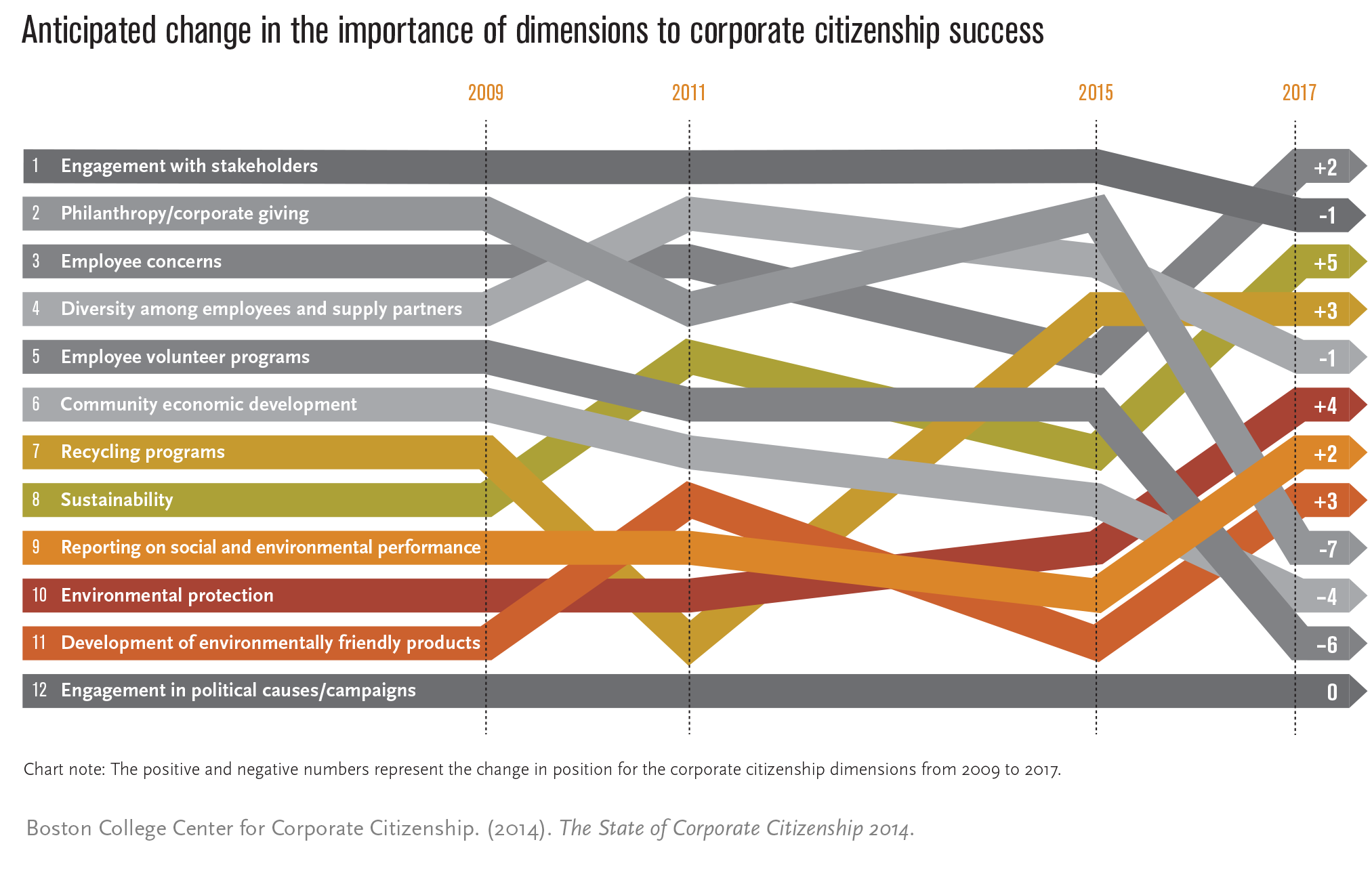 Environmental sustainability is a critical business issue for companies across the globe. The world’s population is growing, nonrenewable resources are being depleted, and 2014 was the warmest year on record. All of this is expected to be accompanied by increasingly severe energy and environmental problems that could potentially threaten supply chains, production processes, and operations. Moreover, as businesses are often seen as some of the greatest contributors to pollution, waste, and environmental problems, they are increasingly pressured to not just reduce waste or use less energy, but to develop sustainable practices and policies that will preserve and even improve the environments around them.
Environmental sustainability is a critical business issue for companies across the globe. The world’s population is growing, nonrenewable resources are being depleted, and 2014 was the warmest year on record. All of this is expected to be accompanied by increasingly severe energy and environmental problems that could potentially threaten supply chains, production processes, and operations. Moreover, as businesses are often seen as some of the greatest contributors to pollution, waste, and environmental problems, they are increasingly pressured to not just reduce waste or use less energy, but to develop sustainable practices and policies that will preserve and even improve the environments around them.
Environmental issues have the potential to threaten business as well as social value, which is why companies around the world are making them a focus of strategic corporate citizenship programs. The Community Involvement Study 2015, a survey conducted by the Boston College Center for Corporate Citizenship, showed that 30 percent of all companies ranked environmental sustainability as a top social issue to address in community involvement programs.
Additional research from the Center shows that the C-Suite believes environmental sustainability is an important business goal. In the Center’s 2014 State of Corporate Citizenship Report, 70 percent of executives identified reporting on environmental performance as a top corporate citizenship priority and more than 65 percent likewise saw recycling programs and the sustainable use of resources as critical to CSR efforts. Moreover, more than 90 percent of executives see corporate citizenship efforts as being directly related to helping them achieve their business goals of securing a sustainable supply chain and improving risk management. Not surprisingly, a majority of executives are reporting increases in resources for environmental sustainability over the next two years, and project an increased focus on environmental investments. Executives report that recycling programs, sustainability, reporting on environmental performance, environmental protection, and the development of environmentally friendly products will gain in importance over the next two years.

Companies throughout the world are realizing business value by investing time and resources into environmental sustainability. Changes in the corporate citizenship regulatory landscape have led to increased expectations of companies in the area of environmental sustainability, as companies are in a unique position to make a significant impact. Many companies have begun to make good progress in this area and, as members of the Center, DENSO and Idaho Power serve as compelling examples:
- DENSO, headquartered in Japan, embraces its goal to facilitate sustainable growth of society, preserve the planet, and protect lives to prepare a bright future for generations to come. As a member of the automotive industry in particular, DENSO sees its most important mission as minimizing the environmental impact of automobiles, namely the adverse environmental impact of global greenhouse gas emissions and tragic-fatal automobile accidents. Their efforts around these areas include everything from developing high-performing, compact components for electric power trains in hybrid and electric vehicles to creating new technologies that optimally control greenhouse growing environments, in addition to promoting environmental activities in collaboration with local communities.
- As a power company, Idaho Power understands that meeting the energy demands of their communities requires the construction, operation, and maintenance of electrical power facilities that inevitably impact the natural environment. For this reason, they feel a strong commitment to the prosperity and sustainability of their communities. To this end, they promote energy efficiency and encourage their customers to make wise and efficient use of all resources, including electricity. In the community, they also work to care for numerous parks and recreation facilities, research best-practice fish and bird protection programs, manage archeological and historical sites, and establish environmental programs to prevent water pollution. Their innovative effort to engage employees has led to improvements in operational efficiency and bottom line cost savings for the company.
Image Source: National Centers for Environmental Information (NOAA)